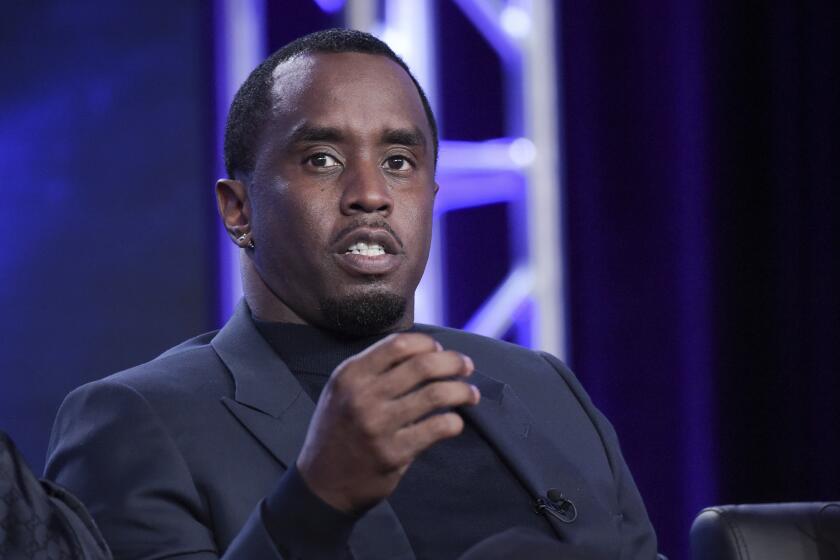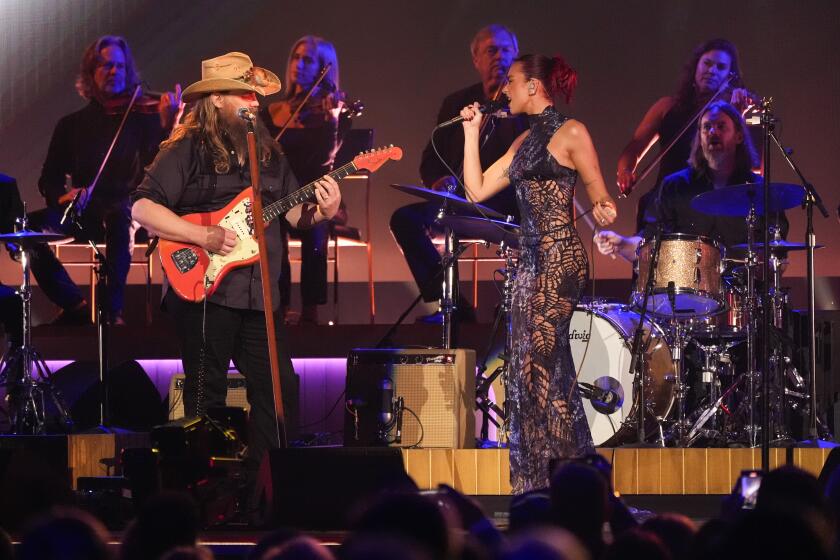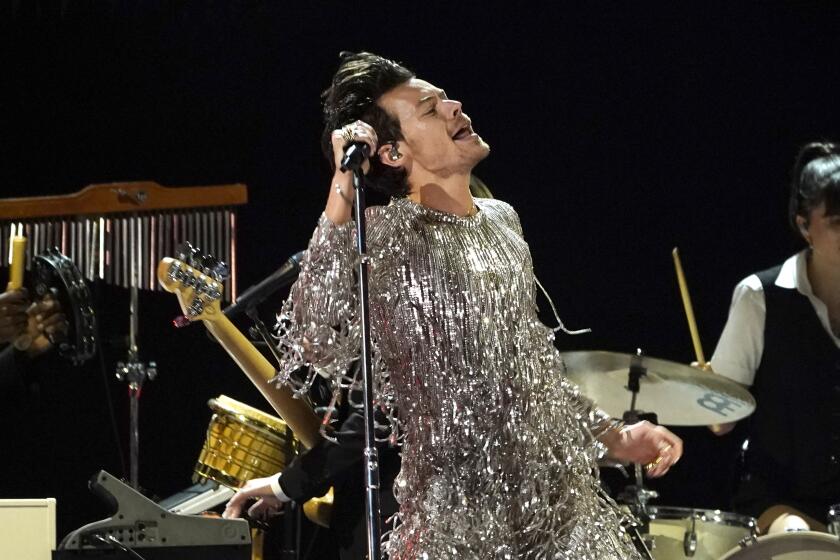Carter and Bradford Make Notable Music
The local partnership of clarinetist John Carter and cornetist Bobby Bradford has lasted nearly 25 years but don’t scan the jazz club or concert listings expecting to find the veteran duo playing all over town.
Carter and Bradford, who are at Catalina Bar and Grill in Hollywood through Sunday, have found a more receptive climate for both their individual and joint musical ventures on the East Coast and overseas. Despite wide-ranging and effusive critical acclaim, their mutual resolve to pursue a free-form musical path rather than recycle what Bradford termed the common literature of jazz has left them strangers in their home town . . . but not by choice.
“If we could take care of our families by just playing, we’d stop working tomorrow,” declared Bradford during an interview at the L.A. Wind College in West Los Angeles. “We’ve never been able to figure out a way to work enough, not unless we go into a club playing what they want us to play.
“In September, John took his octet to Pomona College, where I happen to be a lecturer so there was a lot of inside push to get the band booked. That’s the only time the octet, in the past or the near future, is going to work in the L.A. basin.”
Carter, 58, and Bradford, 53, are leading a quintet at Catalina’s featuring pianist Don Preston and New York imports Richard Davis (bass) and Andrew Cyrille (drums). The performances tonight and Sunday, which will mix previously recorded material with fresh originals, will be recorded for release as a live album by hat Hut, a Swiss label focusing on more adventurous, experimental jazz.
The co-leaders may be kindred spirits in long standing but their musical empathy is the product of a notable difference in style. Carter, who has been a consistent jazz magazine poll winner on his instrument in recent years, often unleashes explosive flurries of notes while Bradford usually opts for a spare, restrained approach.
“As years have gone by, we’ve intuitively studied each other’s style,” Carter said. “We both have strong feelings for all the little nooks and crannies in each other’s playing. I have a strong feeling for directions that Bob will take and in writing, especially for the two of us, I can hear things he can do.”
Continued Bradford: “We’re very different, almost polarized, in terms of solo style but there are things I hear in his playing that I take off on. If I played like he did, I don’t think there would have been anything that would have attracted us to one another.
“Our backgrounds are similar so our references are very closely tied in many places. If we decide to relate to the deep Delta blues, we both know what that means. You say swing, we both know the same tunes and listen to the same saxophone players; say be-bop, we both come from the same background.”
Music isn’t the only similarity linking the two. Both have strong Texas roots--Carter was born and raised in Fort Worth while Bradford moved to the state as a youth and grew up there. Each is a respected music educator--Carter as a teacher in the Los Angeles city school system and at the independent L.A. Wind College he founded nearly 6 years ago while Bradford has been a lecturer at both Pasadena City College and Pomona College since 1974.
Both are ardent prosyletizers for jazz as an indigenous American art form deserving of greater recognition from mainstream cultural institutions across the nation. And each decided in the early ‘70s to specialize on an instrument--the clarinet for Carter, cornet for Bradford--that was not being widely played in the jazz community.
Mutual friends introduced Carter and Bradford shortly after the latter moved here in 1964 after a three-year stint with Ornette Coleman. They formed the New Art Jazz Ensemble in 1965 and released two albums apiece on Revelation and Flying Dutchman under the Carter/Bradford name between 1969 and 1973. Carter formed his own Ibedon record label while Bradford operated a workshop from 1976 through 1978 that became a focal point for many local free-form players.
Carter has been more active of late as a leader, recording several albums of “song cycles” for Black Saint and Gramavision. Bradford’s most recent recording as a leader was the “Lost In L.A.” album for Soul Note in 1984; a live album for that label is scheduled for release this summer.
The weekend performances should reflect the challenging, uncompromising spirit at the heart of Carter and Bradford’s music.
“We have yet to lose an audience when we get a chance to play like we can play,” Bradford explained. “We try to program the music (to be) as accessible as we can but when I get the horn out, I’m not even remotely going to think about how you want me to play it.
“I can’t even imagine that. I’m trying to say this is how I see this thing and I want you to look at it. You don’t have to agree . . . but just look at it.”
Added Carter: “There’s an element of a revolutionary stance in what we are doing and have done for a long time. Art has to be presented from the standpoint of the artist and how the artist views those things that are around him, not like the consumer thinks it should be because that will change with every consumer. What all this means is we kinda like to do what we want to do.”
More to Read
The biggest entertainment stories
Get our big stories about Hollywood, film, television, music, arts, culture and more right in your inbox as soon as they publish.
You may occasionally receive promotional content from the Los Angeles Times.






